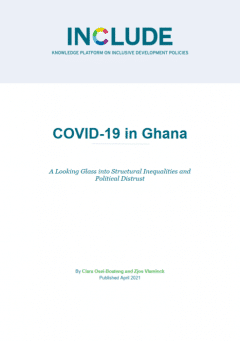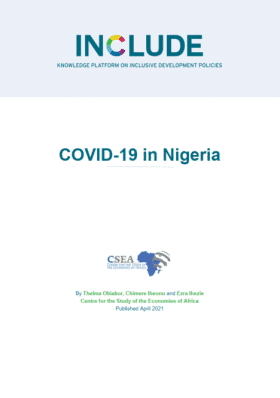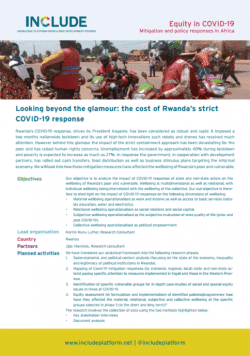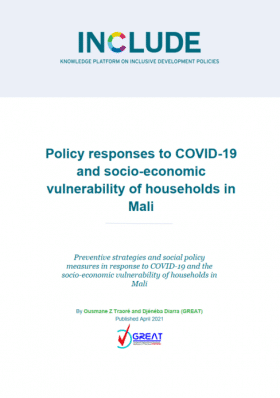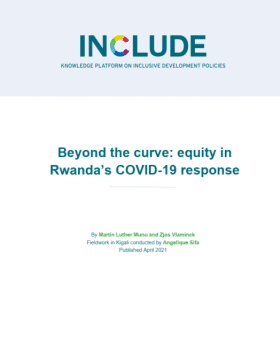
This report examines the impact of the state and non-state COVID-19 responses on the wellbeing of Rwanda’s poor, specifically: taxi-velo drivers, taxi-moto drivers, market women and the elderly. Embedded within the country’s political economy, Rwanda’ COVID-19 response was centrally coordinated, implemented through decentralized government authorities and local civil society, guided by development partners and enforced through punitive measures. The state response followed three stages: containment, social protection extension and economic recovery. Throughout the stages, specific attention for the reality of the extreme poor and vulnerable was limited. Village leaders were key in identifying eligible households for a largely successful food distribution program although issues of transparency and equity were a hindrance as people without permanent homes were excluded. The involvement of non-state actors such as trade unions was limited from the start but improved as a result of campaigns and their integration in the design of Standard Operating Procedures (SOPs) for reopening the economy.
